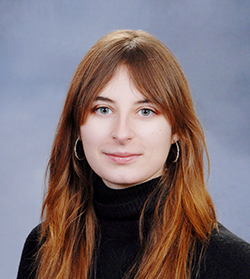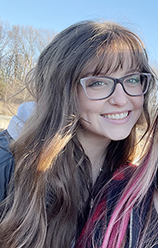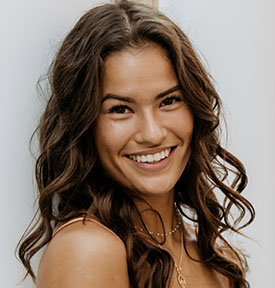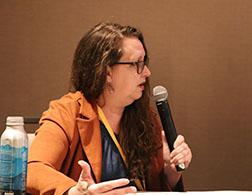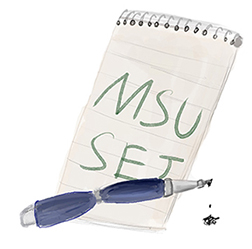
This is the 6th in a series of articles about reporting skills by Knight Center students who attended the 2025 Society of Environmental Journalists conference.
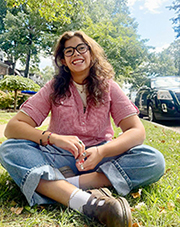
Isabella Figueroa Nogueira
By Isabella Figueroa Nogueira
Emily Renn is showing her plush prairie dogs to journalists at the SEJ conference in Arizona. Credit: Isabella Figueroa Nogueira
Standing at around 16 inches tall, the native North American rodent has been subject to significant population declines since the early 1900s.
At the Society of Environmental Journalists recent annual conference in Arizona, journalists were taught about the fluctuating numbers of prairie dogs, especially Gunnison’s prairie dogs.
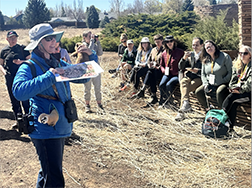
Emily Renn is showing her plush prairie dogs to journalists at the SEJ conference in Arizona. Credit: Isabella Figueroa Nogueira
There are many reasons for the decline in the number of prairie dogs, like hunting, but one factor stands out from the rest: the bubonic plague, said Emily Renn, a PhD student at Northern Arizona University’s School of Earth and Sustainability
“Throughout Arizona, Gunnison’s prairie dogs declined over 96% across their range,” Renn said.
However, even though they were petitioned for protection under the U.S. Fish and Wildlife Service, the agency determined that listing the prairie dog under the Endangered Species Act was not justified.
Historically, their range was much broader than today, but there still is hope, said Jim Devos, the Mexican wolf coordinator for the Arizona Game and Fish Department.
“We believe that with some of the conservation measures others are implementing, we anticipate if we can get on top of the plague issue, which is the single greatest challenge today, that we can get back to more robust prairie dogs,” said Devos. Continue reading

